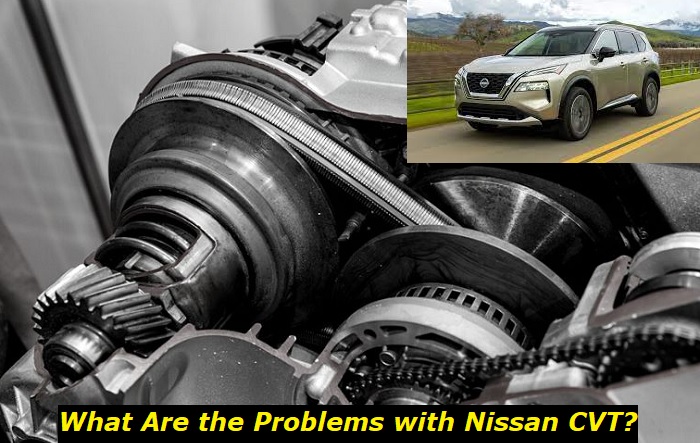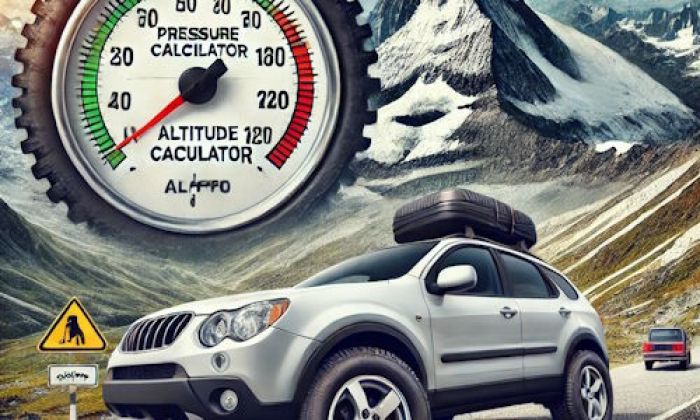Are you having problems with your Nissan's transmission? Do you have issues accelerating your Nissan CVT car? Are you curious about what possible fix there is? If yes to these questions, read on to know more.
Nissan CVT transmissions highlights
- Average lifespan:90,000-100,000 miles
- Reliability Score:Low
- Prone to minor issues:Yes
- Price for repair after failure:Usually, no repair
- Price for replacement:$4,000-$6,000
- Availability of parts:Poor
- Common problems:bad fluid leaks, shuddering, only reverse available, various noises, complete loss of power, slipping.
5)
The CVT transmission models have been the subject of legal action over the years due to the issues accompanying them. One of the Nissan CVT problems is the acceleration issue. This manifest in slow and draggy acceleration, shuddering noise during acceleration, sudden speed loss, and sporadic delays in acceleration.
The possible causes of the acceleration issues are inaccurate sensors, CVT issues, or other unrelated to CVT problems that are worth checking. Is it possible to fix the acceleration problem? Yes, it is. All you need to do is to identify the possible cause of your Nissan CVT acceleration problem and solve them accordingly.
What Is CVT?
Continuously Variable Transmission (CVT) is a vehicle transmission system offering better power delivery and optimum fuel efficiency than conventional transmissions. For over 20 years, Nissan has been adding CVT to their different models. The following models come with CVT transmissions:
- Nissan Sentra
- Nissan Altima
- Nissan Maxima
- Nissan Murano
- Nissan Pathfinder
- Nissan Rogue
- Nissan Versa
How CVT Transmission Works
The working of a CVT transmission is similar to that of bicycle gears. It utilizes a hoist with two cones facing each other and connected with a belt or chain. Dissecting the drivetrain, you will see one cone of the car transmission system connected to the engine output shaft while the other transmits power to the drive wheels and driveshaft.
Rotation of the wheel moves the chain or belt between the two cones' sides; this movement changes the gear ratio. As the rotating process continues, it changes the diameter of the chain or belt, thus varying the gear ratio based on the required power for acceleration. The change in ratio continues unhindered as the car moves.
Merits And Demerits Of CVT Transmission
CVT transmission comes with some advantages and disadvantages over conventional transmissions. Understanding the pros and cons would give us a broader understanding of why CVT is important.
Merits
- Increased fuel economy
When looking for a fuel-efficient car, embrace the CVT transmission variant because they significantly improve fuel economy. CVT transmissions have been put to good use in hybrid cars for the needed fuel efficiency. Also, many other cars have adopted the technology from Nissan to equip their vehicles to improve fuel mileage.
- Smooth and seamless acceleration
The characteristic of CVT transmission is the perfect control of the gear ratio. This transmission makes it easy to change the gear ratio to accommodate varying driving modes as well as the needed acceleration.
- Optimum and consistent performance
Driving a car with a CVT transmission is so easy because of the absence of hard shift points; that's why it is called a 'shiftless' transmission. It is not only smooth and easy to drive, but it also delivers the goods in terms of consistency of performance. CVT's performance is optimum and is devoid of any sudden loss of acceleration present with other transmissions.
Demerits
- Noisy transmission
The letdown of CVT transmission is its noise. It is way louder than a manual transmission. When driving and trying to do a hard acceleration, the noise it gives off often makes the ride less comfortable for some drivers.
- High maintenance cost
To maintain or fix CVT transmissions is way costlier than others. In terms of durability, CVT also falls short.
- Lack of high-performance
CVT transmissions are helpful for different drives except for high-performance rides. CVT transmissions cannot sustain high speeds, not manage high-horsepower automobiles, and hence cannot feature in sports cars.
CVT Acceleration Problem: Symptoms
The acceleration problems in the above-mentioned Nissan models show up in different ways. Hence, if you can understand the symptoms and what to do to nip the situation in the bud, then you are a step closer to resolving the issues. Here are some signs that will offer clues to the fact that your Nissan has acceleration problems.
1) Slow Acceleration
When your car experience deceleration while going uphill, your car has acceleration issues, and many Nissan car owners have reported the same. Besides the uphill complaint, reports from some car owners said they experience acceleration trouble even when driving on highways.
At times the issue creeps up on drivers who accelerate from a speed of 80 mph to 60 mph while driving with cruise control on. In addition, drivers also said they experience hearing whizzing sounds. It should be noted that this issue is a dangerous one because it can come up at a time one least expects. For instance, when crossing a busy intersection, railway, or overtaking.
2) Shuddering Noises During Acceleration
When your Nissan car is at top speed, the vehicle begins to shake and then gives off a loud shudder. If you experience this, the car is having acceleration problems.
3) Car Losing Power While Accelerating
While accelerating, Nissan CVT cars lose power, and this is another symptom. Drivers have reported sudden power loss when trying to accelerate. It was also said that it can shut down totally while facing agonizingly slow speed. Those cars at that point cannot go beyond 15 mph, and to make matters worse, the brake light of such cars stays on after releasing the brake pedal.
4) No reverse or only reverse
It's very likely that a failed Nissan CVT will have no reverse or will only be able to move in reverse. This is the clear sign that the transmission has already lived its life and needs replacement or very expensive repairs.
5) Sporadic Delay While Trying to Accelerate
When you are experiencing sporadic delays when trying to accelerate, that confirms that your car has an acceleration problem. Drivers reported that for a few seconds, their car stopped accelerating even though they pressed the gas pedal longer than usual. It was said to subside after a while.
While the situation persisted, the RPM of the car went up and was displayed on the tachometer, but the car itself did not accelerate. However, to temporarily solve the problem, the vehicle must be turned off for a short time and then back on again.
Possible Causes and Fixes
Different factors cause acceleration problems in Nissan cars which range from a faulty CVT to a clogged mass-air flow sensor. Hence, once you have identified the issues, it would be easy to proffer the solution.
1) Defective CVT
If the CVT is defective, your car is bound to experience acceleration problems. It was confirmed that the transmissions had manufacturing issues troubling Nissan cars. The low transmission fluid or a faulty stepper motor further compounds the problems. The CVT belt system is also prone to failure, and wear and tear of other components can often result in transmission giving up the ghost.
However, to resolve the issue, Nissan has sent out several technical service bulletins which users can follow to stamp out the problem caused by faulty CVT. The noises heard result from unusual abrasion of the inner CVT components, which include the reduction gear bearings, CVT cooler, and the oil pump kit.
2) Faulty Stepper Motor
The stepper motor is a component of the inside CVT transmission that controls the gear ratio. If a stepper motor has issues, the car will be confronted with acceleration issues, including shuddering noises and deceleration. To replace a defective stepper does not cost much; hence, to stop the problem, replace it.
The part of the stepper motor that damages easily is the winding. You need to watch out for burned plugs or drivers because they can lead to damage on the stepper motor.
3) Defective Sensors
When any or some of the sensors in a Nissan CVT are defective, this will cause the car to drag when accelerating. Sensors in the Nissan include MAF (Mass airflow sensor) and oxygen sensors. When the MAF sensor gets clogged with dirt, it will make your engine misfire, leading to sluggish acceleration. If any of the sensors get clogged with dirt, the indication from the onset of the Check Engine Light, the solution is to clean them up.
Conclusion
As CVT transmission technology is added to many vehicles today, the knowledge gained from this post will see you through any issue you might eventually encounter with your Nissan or any model with CVT transmission. Since CVT transmission technology has come to stay, the best way to cope with it is to understand it.
About the authors
The CarAraC research team is composed of seasoned auto mechanics and automotive industry professionals, including individuals with advanced degrees and certifications in their field. Our team members boast prestigious credentials, reflecting their extensive knowledge and skills. These qualifications include: IMI: Institute of the Motor Industry, ASE-Certified Master Automobile Technicians; Coventry University, Graduate of MA in Automotive Journalism; Politecnico di Torino, Italy, MS Automotive Engineering; Ss. Cyril and Methodius University in Skopje, Mechanical University in Skopje; TOC Automotive College; DHA Suffa University, Department of Mechanical Engineering






Add comment